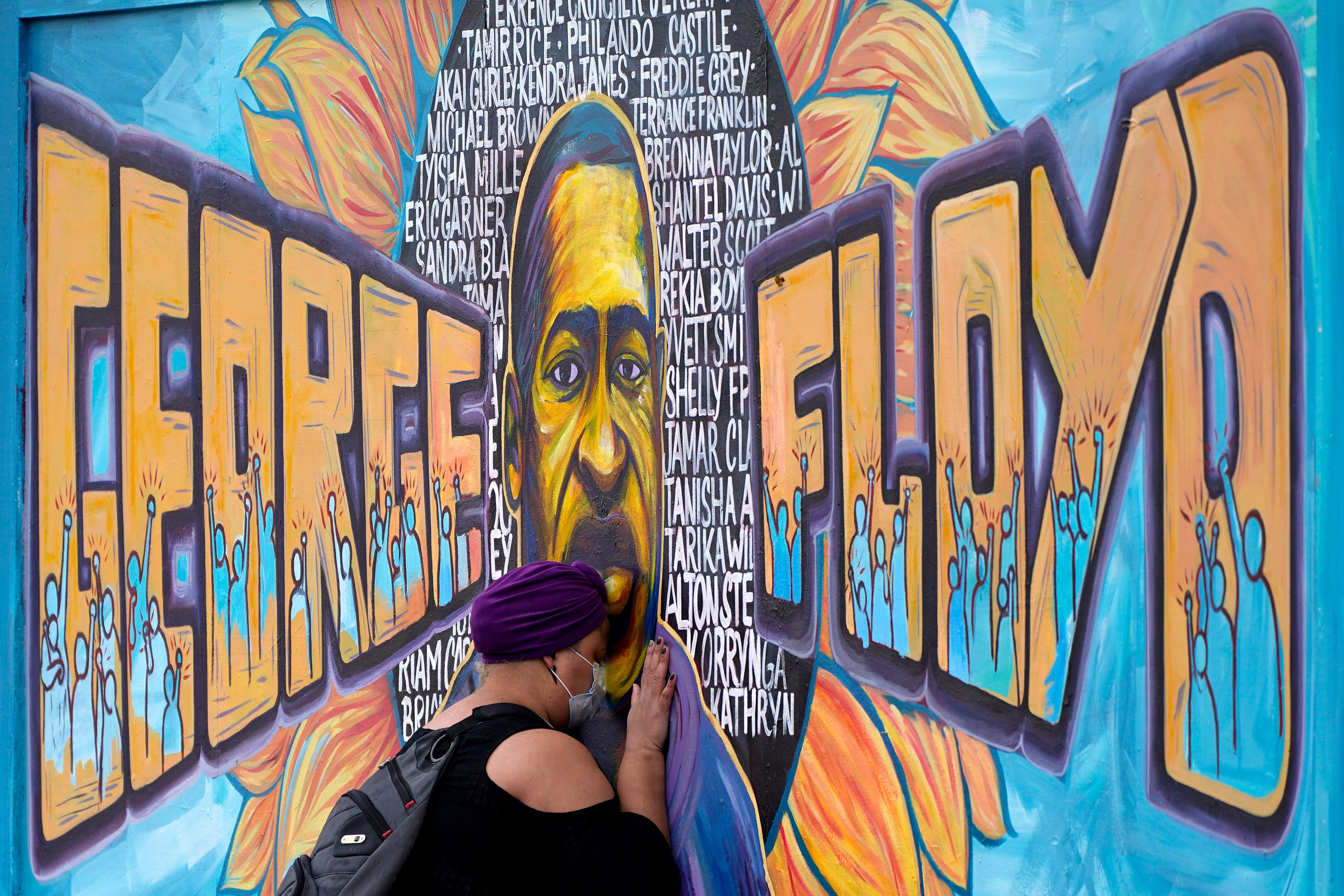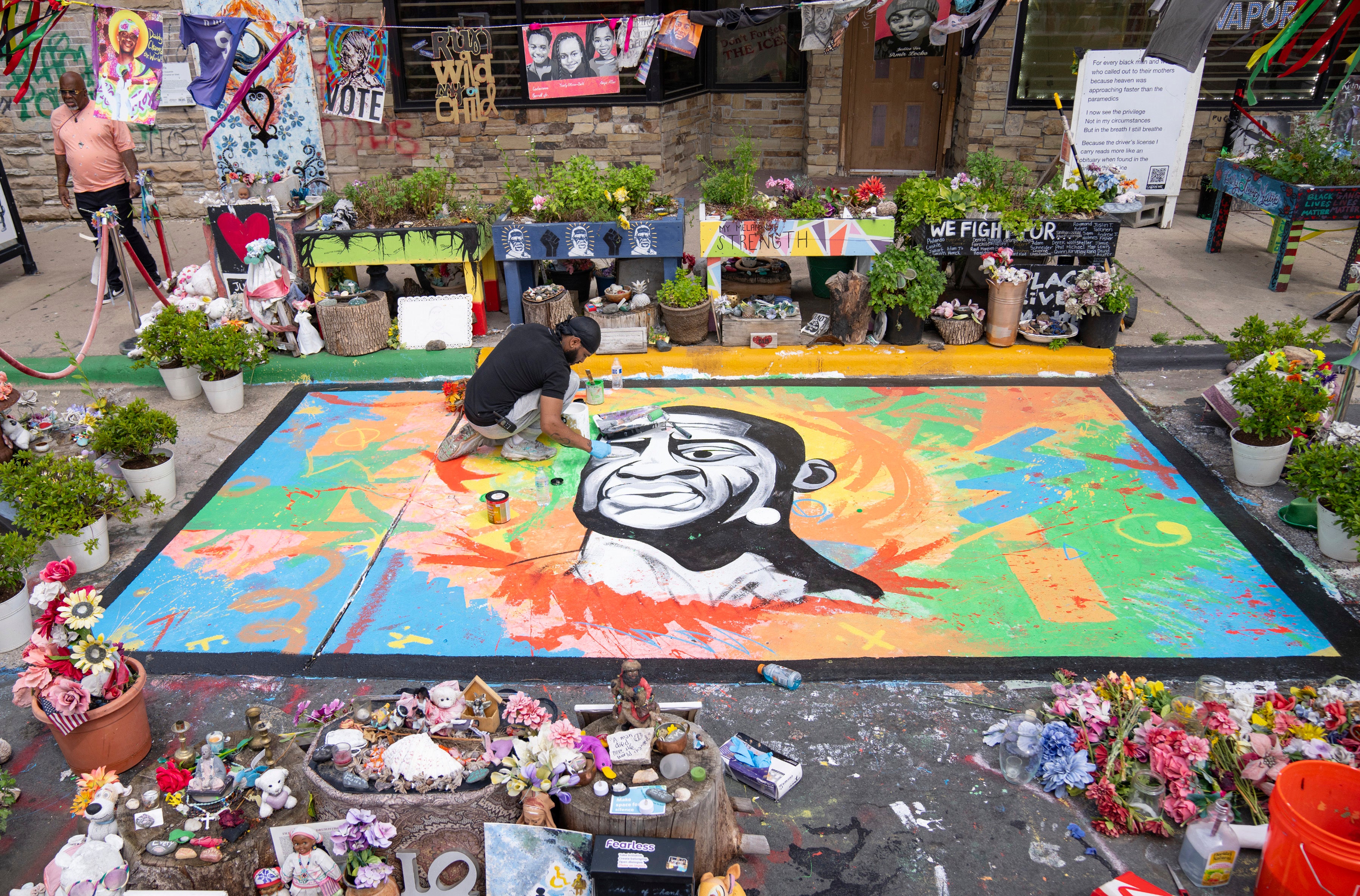Struggling businesses at corner where George Floyd was murdered sue the city
The area is now known as George Floyd Square

Several business owners at the struggling corner where George Floyd was murdered by a Minneapolis police officer in 2020 are suing the city to demand it take over their properties and compensate them.
The owners of the Cup Foods convenience store and other businesses operating near 38th Street and Chicago Avenue argue that the city's failure to address deterioration and crime in the neighborhood has ruined their businesses and constitutes an unlawful taking of their property without just compensation, the Minnesota Star Tribune reported Thursday. They're seeking $30 million in damages.
The area, now known as George Floyd Square, has become a place of pilgrimage for social justice supporters from across the country, and the store has renamed itself Unity Foods. But business owners say they haven't benefitted, while activists and officials remain divided over how to transform the intersection while keeping it as a permanent memorial.
Floyd died after a white officer pinned his neck to the pavement outside Cup Foods for 9 1/2 minutes despite the Black man’s pleas of “I can’t breathe.” The ensuing protests, which turned violent at times, tested the leadership of Gov. Tim Walz at one of the state’s most consequential moments, and sparking a nationwide reckoning over racism and police misconduct. The officer, Derek Chauvin, was convicted of murder.

The legal action, filed last week in Hennepin County District Court, argues that the businesses have lost revenue, real estate value, reputation, and tenant and rental income. It argues that the city's decisions led to higher crime and created a “no go zone” for police in the area. It replaces an earlier lawsuit by the businesses that was dismissed two months ago.
Michael Healey, the lawyer representing the businesses, told the Star Tribune there are two possible outcomes. The businesses "could conceivably keep the property if a settlement is reached with the city on the diminished value,” he said. The other possibility is that the city could begin the process of taking the properties and compensating the owners.
A city spokesperson said in a statement that while it can’t comment on pending litigation, the city “understands the challenges that residents and businesses have confronted in the wake of George Floyd’s murder.“
Bookmark popover
Removed from bookmarks